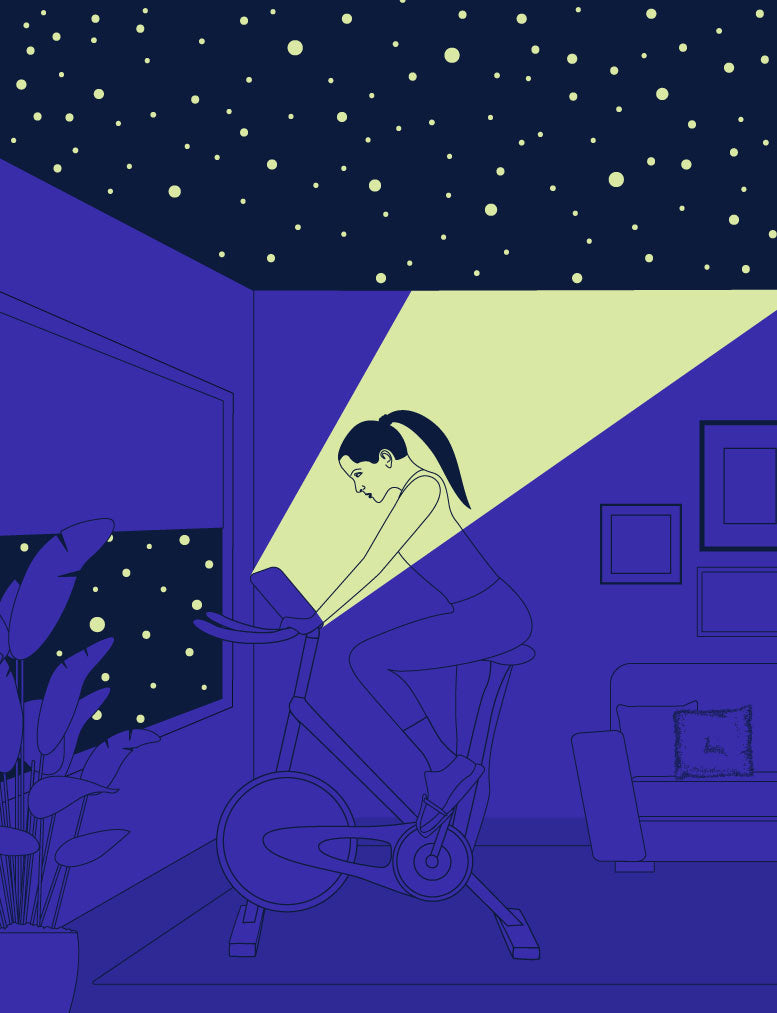We’ve all been there, you can’t get yourself out of bed for an early morning workout, so you opt for a late-night gym session or run instead. But, is it bad to workout at night? Is there a reason most people exercise in the morning? For many, late-night workouts are a convenient way to stay fit while balancing a busy schedule. However, some believe working out before bed can disrupt sleep, leading to fatigue the next day. This article will explore the pros and cons of nighttime workouts, how they affect sleep, and tips for optimizing your evening exercise routine.
Understanding Nighttime Workouts
With packed schedules full of work, family responsibilities, and social obligations, fitting in a workout earlier in the day can be a challenge. Let’s break down a few reasons why people choose working out at night:
- Busy workday: After a long day, evening workouts may be the only time available for exercise.
- Energy boost: Some people find they have more energy and focus later in the day, improving their workout performance.
- De-stressing: Nighttime exercise can be a great way to unwind after a stressful day, releasing endorphins that help with relaxation.
While many find evening workouts convenient, it's important to explore their potential impact on your sleep and overall well-being.
Effects of Working Out Before Bed on Sleep Quality
For most of us, the purpose of working out is to feel like a happier, fitter version of ourselves. Though, what happens if working out before bed is actually making our sleep worse? Does that mean all the work we just put into the gym is going against our body's sleep rhythms and cycles? It has been found that vigorous exercise within an hour of bedtime could delay sleep onset in some individuals. This is due to an increase in adrenaline, heart rate, and core body temperature, potentially making it harder to relax before bed. Though, moderate exercises like yoga or light stretching can even enhance sleep quality.
Benefits of Exercising Before Bed
If your schedule only allows exercising before bed – don’t worry, there are several benefits. It’s all about how you approach the workout and at what intensity you exercise. Make sure to go about it as a form of self-nourishment, versus an intense punishment. You want to end your day on a high note!
Here are some pros:
- Stress relief: After a long day, a workout can help you unwind, releasing endorphins that reduce stress and anxiety.
- Improved performance: Studies show that strength, flexibility, and endurance often peak in the evening, allowing you to perform at your best. Hot tip: the best way to increase your gains is to add in supplementation!
- Flexible scheduling: For those who can’t fit in a workout during the day, evening exercise offers a practical solution. Fewer daytime distractions mean you can dedicate more time to your fitness routine.
- Alone time: Often, when exercising at night, you may be the only one at the gym! This means you get to workout without having to be surrounded by crowds of people trying to share weights.
Potential Drawbacks of Working Out at Night
Although working out at night can help you de-stress and improve performance, it's really important to be mindful of safety and sleep disruption concerns. Finding the right balance and intensity level can minimize these negatives.
- Sleep disturbances:
- Delayed sleep: High-intensity workouts too close to bedtime may make it harder to wind down, keeping you up longer than intended.
- Increased alertness: For some, the adrenaline rush after a workout can lead to a boost in energy that makes falling asleep more difficult.
- Safety concerns:
- Outdoor exercise risks: Running or cycling outdoors at night can be risky due to lower visibility, leading to potential accidents or injuries.
Tips for Effective Nighttime Workouts
For those who prefer working out before bed, here are some tips to make sure your workout complements your sleep schedule and doesn’t leave you too wired at night!
1. Time your workouts wisely:
- Try to finish your workout at least 1–2 hours before bed. This gives your body time to cool down and relax.
- Avoid high-intensity workouts close to bedtime. Instead, opt for moderate activities that won’t spike your heart rate or adrenaline levels too much.
- For optimal results, it’s essential to fuel your body during your exercise. Explore Groove’s BCCA supplements to give yourself a boost!
2. Choose relaxing exercises:
- Low-intensity workouts: Yoga, Pilates, or a simple stretching routine can help ease you into sleep mode without overstimulating your body.
- Gentle cardio: Walking, light jogging, or swimming can offer a good balance of exertion and relaxation.
3. Establish a post-workout routine:
- Cool down: Don’t skip the cool-down phase of your workout (even if you are really ready to hop into the shower). Stretching and breathing exercises can help signal to your body that it’s time to relax. Especially because it helps your mental health as well!
- Wind down: After exercising, create a calming post-workout routine like taking a warm shower, listening to soothing music, or meditating. You can also check out our line of post-workout supplements to help you transition to bed a bit smoother!
References
- Alnawwar, M. A., Alraddadi, M. I., Algethmi, R. A., Salem, G. A., Salem, M. A., & Alharbi, A. A. (2023). The Effect of Physical Activity on Sleep Quality and Sleep Disorder: A Systematic Review. Cureus, 15(8), e43595. https://doi.org/10.7759/cureus.43595
- Bobby. (2024, July 15). Get moving to get better sleep. National Sleep Foundation. https://www.thensf.org/get-moving-to-get-better-sleep/
- Physio. (2023, October 3). The importance of cooldown in sports. Pivotal Motion Physiotherapy. https://pivotalmotion.physio/the-importance-of-cooldown-in-sports/
